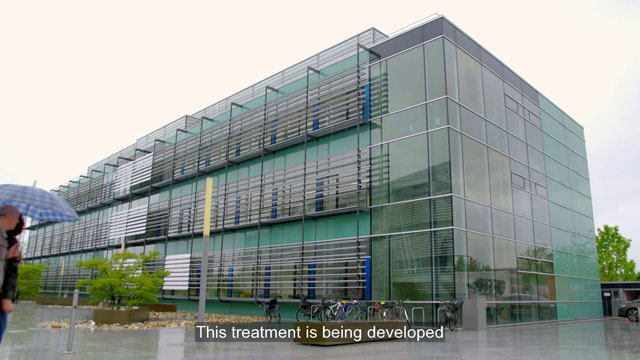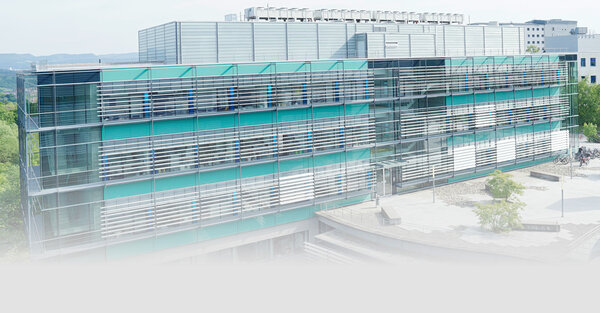
News
-
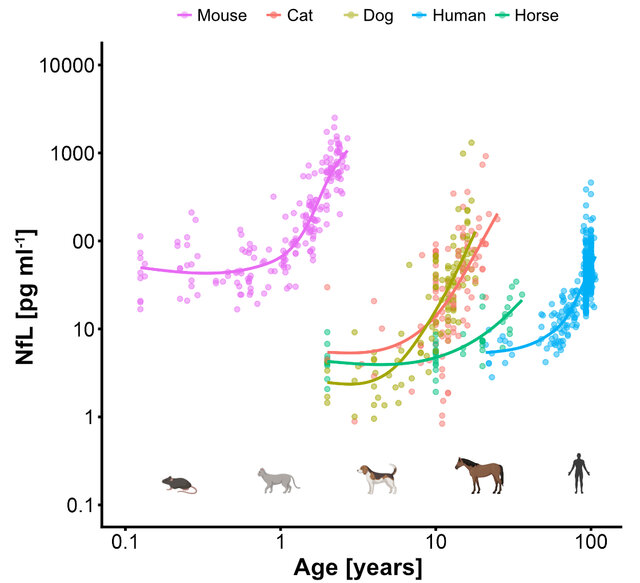
Blood Marker from Dementia Research Could Help Track Aging Across the Animal World
The protein “neurofilament light chain” (NfL) – studied in humans in the context of neurodegenerative diseases and aging – is also detectable in the blood of numerous animals, and NfL levels increase with age in mice, cats, dogs, and horses.
-
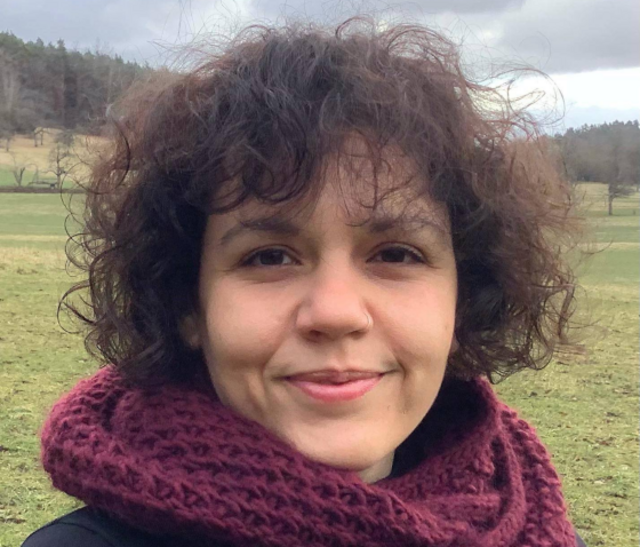
Chimeric Mouse-Human Cultures Enable Human Microglia Studies in a Dish
Recent pioneering studies have reported the transplantation of human organoids into murine brains to study fundamental questions of human neural development and glial biology. Building on these advances, researchers at the Hertie Institute for Clinical Brain Research at the University of Tübingen have now achieved a comparable outcome in vitro by combining human organoids with mouse brain slice cultures.
-
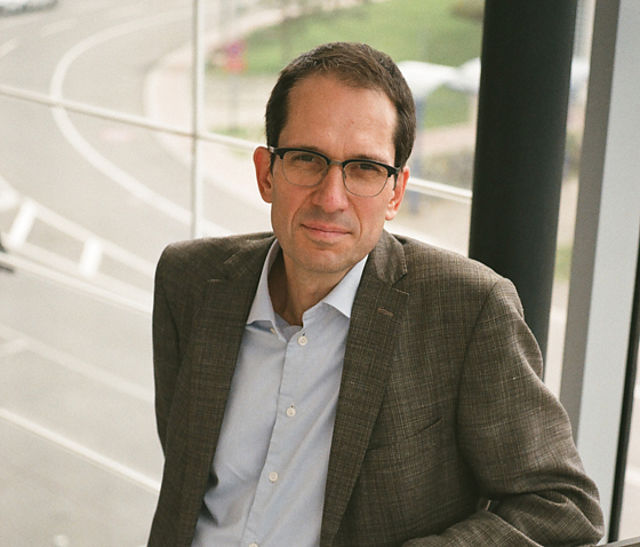
Change at the top of the HZN: Prof. Holger Lerche takes over as Chairman of the Board
The Hertie Center for Neurology (HZN) has a new Chairman of the Board. Prof. Holger Lerche is succeeding Prof. Thomas Gasser, who shaped the position with great dedication for many years.
We would like to thank Prof. Gasser for his outstanding service and wish Prof. Lerche a successful start in his new role!
-
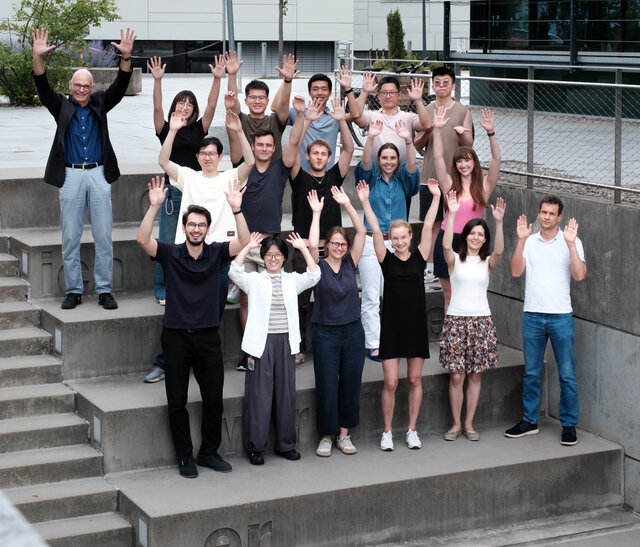
Prof. Ulf Ziemann among the world's most cited scientists
Prof. Ulf Ziemann is among the world's most cited scientists again this year. Congratulations!
He was the only neuroscientist in Tübingen to receive the award, one of only four scientists at the University of Tübingen, and one of seven in the field of „Neuroscience und Behavior“ in Germany.
-
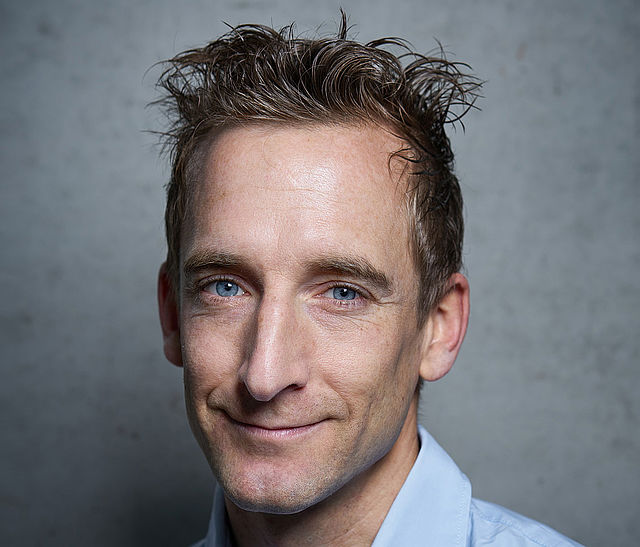
RNA medicine: Hope for previously incurable diseases
RNA medicine can be used to treat previously incurable diseases. This represents a huge opportunity for patients with rare diseases – but also for those with common diseases such as Alzheimer's.
Prof. Matthis Synofzik, head of the Section “Translational Genomics of Neurodegenerative Diseases” at HIH, is considered one of the pioneers of a medical revolution: RNA therapy.
-
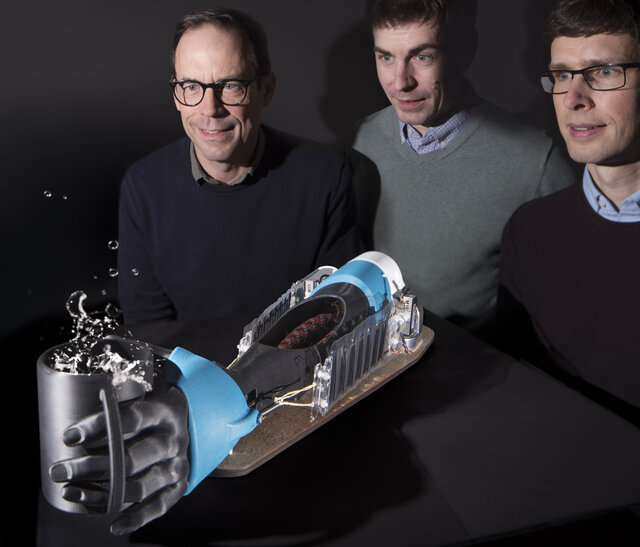
Parkinson’s Foundation Innovation Award
Many people with Parkinson's experience tremor – involuntary shaking that makes everyday activities extremely difficult. A research team led by Dr. Alona Shagan Shomron (MPI-IS), Prof. Syn Schmitt (University of Stuttgart), and Prof. Daniel Häufle (HIH) is therefore developing new approaches for soft, wearable assistive systems powered by “artificial muscles.” For this, they were awarded the Parkinson's Foundation Innovation Award. Congratulations!
-
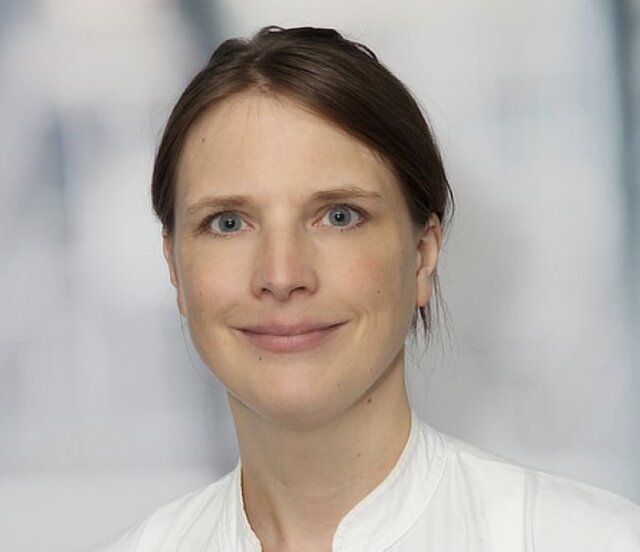
World Stroke Day on October 29: New research group at the HIH
Every year, around 270,000 people in Germany suffer a stroke. If a stroke is suspected, every minute counts. On the occasion of World Stroke Day on October 29, we warmly welcome PD Dr. Annerose Mengel to the HIH. She will now head her own research group “Stroke Recovery and Outcome” in Prof. Ulf Ziemann's Department of “Neurology with Neurovascular Medicine” at the HIH.
-
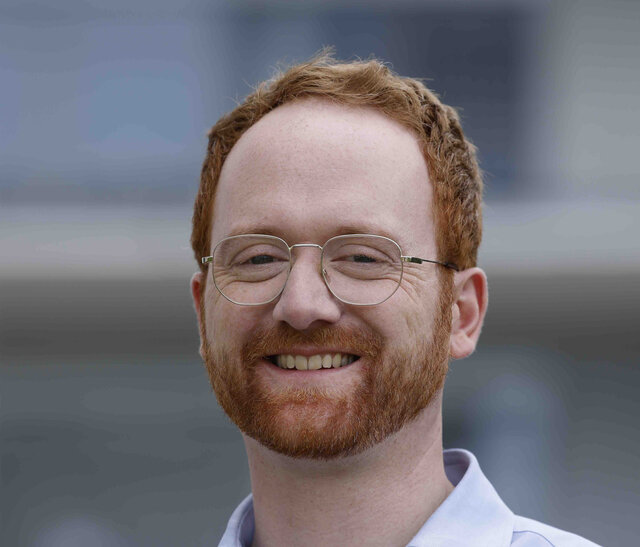
Congratulations to the new junior research group!
PD Dr. Justus Marquetand is strengthening Prof. Markus Siegel's Department of Neural Dynamics and Magnetoencephalography at the HIH with his new junior research group “Magnetomyography.”
We are delighted to welcome him to our institute and wish him every success in all his future research projects!
-
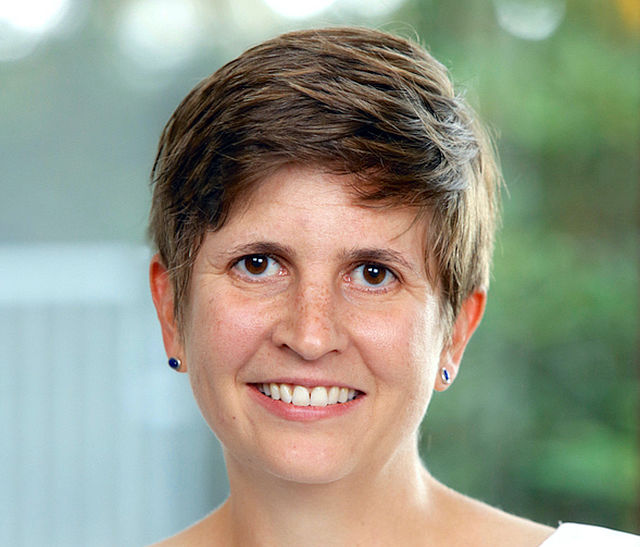
“We want to use the immune system to outsmart brain tumors”
In an interview with the Hertie Foundation, Prof. Dr. Lisa Sevenich, head of the research group “Experimental Neuro-Onco-Immunology" at the HIH, explains how closely the immune and nervous systems are intertwined, what role immunology plays in the fight against brain tumors, and why the microbiome in particular is raising new hope for future therapies.
Read the interview here (in German)
Departments
-
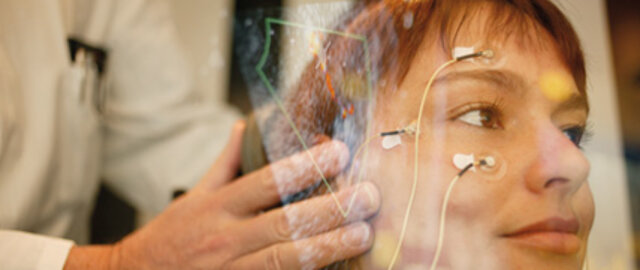
Neurology and Stroke
The Department of Neurology and Stroke has the main focuses in neurovascular medicine (vessel diseases of the brain, cerebral stroke), neuro-oncology (brain tumors, brain metastases), neuro-immunology (e.g., multiple sclerosis) and neuro-intensive medicine. ...more information
-
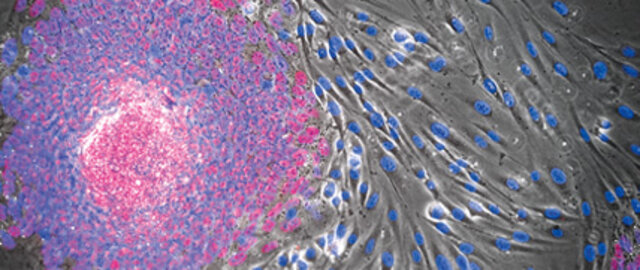
Neurodegenerative Diseases
The Department of Neurodegenerative Diseases treats in-patients on a ward of about 20 beds and in several out-patient clinics. The clinical focus lies on neurodegenerative diseases such as Parkinson’s disease, the ataxias, spastic paraplegias, and dementias. ...more information
-

Neurology and Epileptology
The Department of Neurology and Epileptology has a focus on epilepsy and other paroxysmal neurological disorders. In these diseases, the excitability of nerve cells temporarily changes either due to genetic or acquired defects. ...more information
-

Neurology and Interdisciplinary Neuro-Oncology
The Department of Neurology and Interdisciplinary Neuro-oncology (Director: Prof. Ghazaleh Tabatabai) is a department covering both inpatient and outpatient clinical care... More information
-
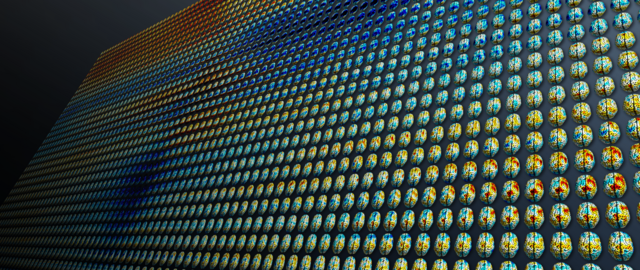
Neural Dynamics and Magnetoencephalography
The Department of Neural Dynamics and Magnetoencephalography was founded in the year 2020 and Prof. Dr. Markus Siegel was appointed head of the department. ...more information
-
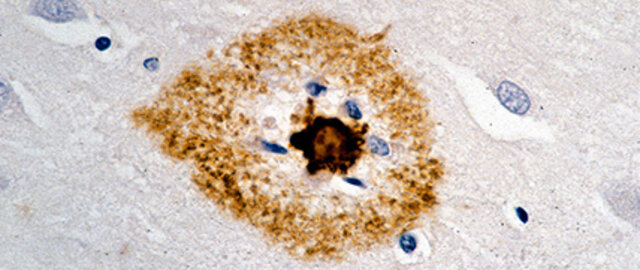
Cellular Neurology
Our research focus is on the cellular and molecular mechanisms of brain aging and age-related neurodegenerative diseases, with a special emphasis on the pathogenesis of Alzheimer´s disease and other cerebral proteopathies ...more information
-
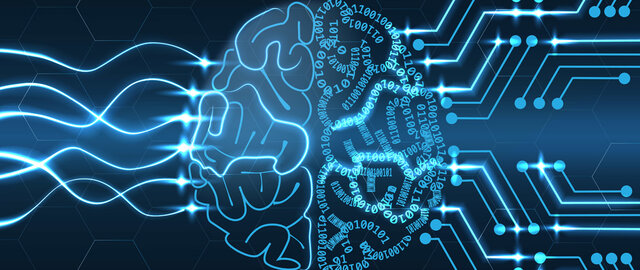
N3: Neurorehabilitation / Neuroprosthetics / Neurotechnology
The department N3: Neurorehabilitation / Neuroprosthetics / Neurotechnology links basic research with technical applications in the field of clinical brain research… more information
-
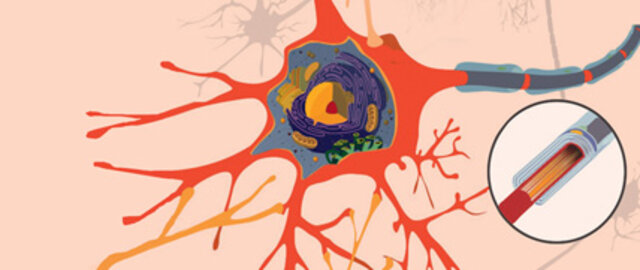
Independent Research Groups
The independent research groups at the HIH focus on a variety of research topics ...more information
Research groups
-
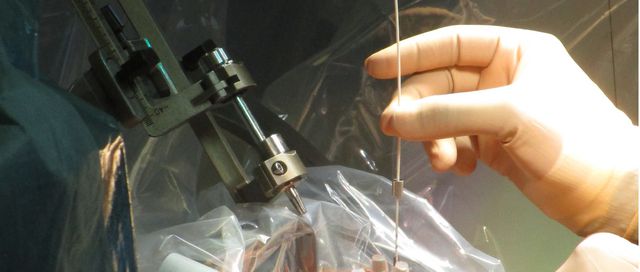
Helfrich Lab
Human Intracranial Cognitive Neurophysiology
The goal of the Helfrich lab is to unravel the neural network mechanisms supporting higher cognitive functions ...more info
-
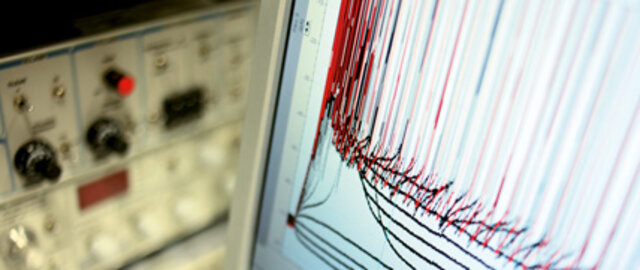
Ziemann Lab
Brain Networks and Plasticity
The human brain possesses the remarkable capacity of reorganization, which is the basis for adapting to constantly changing environmental conditions. This plasticity is of paramount importance ...more information
-
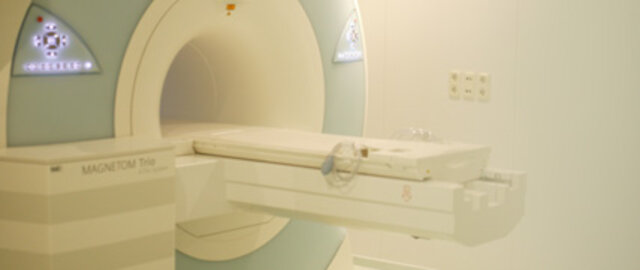
Himmelbach Lab
Neuropsychology of Action
The Research Group "Neuropsychology of Action" is dedicated to investigations of human action control. We study clinical impairments of action control and their neural substrates in patients with brain damage ...more information
-
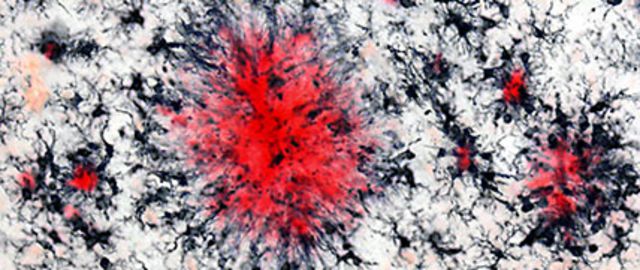
Neher Lab
Experimental Neuroimmunology
An immune response is part of most neurological diseases, and the development of late-onset Alzheimer's Disease (AD) has been linked to immune related genes and most recently also to epigenetic modifications. ...more information
-
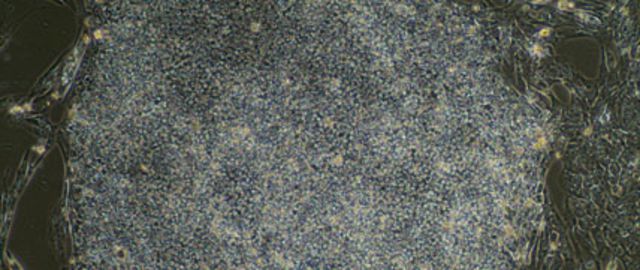
Gasser Lab
Genetics of Parkinson's disease
Parkinson's syndrome (PS) is the second most common neurodegenerative disease after Alzheimer's dementia. The vast majority of patients are ill with no apparent cause. ...more information
-

Laske Unit
Dementia Research Unit
The Dementia Research Unit is a clinical research unit of the Department of Cellular Neurology and the Department of Psychiatry. It closely collaborates with the outpatient Memory Clinic. ...more information
-
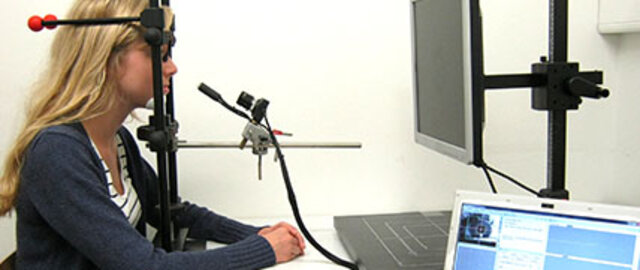
Ilg Lab
Oculomotor Laboratory
Playing video-games is a widely distributed leisure activity in our society. In order to estimate the consequences of video-game play, we study the details of eye movements and pupil light responses ... more information
-
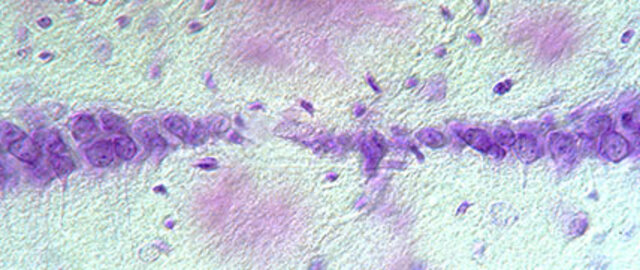
Jucker Lab
Experimental Neuropathology
Cerebral proteopathy is a unifying term for cerebral neurodegenerative diseases in which aggregated proteins are abnormally deposited in the brain. The hallmark proteopathy is Alzheimer's disease (AD) ...more information
-
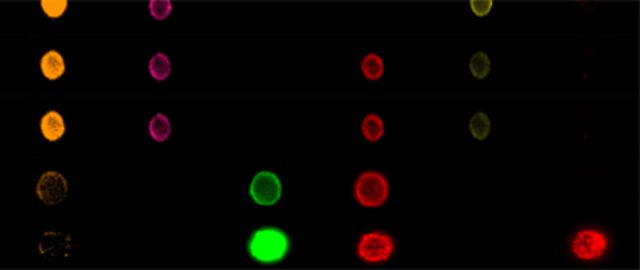
Kowarik Lab
Neurological B cell Immunology
The research group “Neurological B cell Immunology” is focused on the role of B cells in neuro-inflammatory diseases including multiple sclerosis (MS) and... more information
-
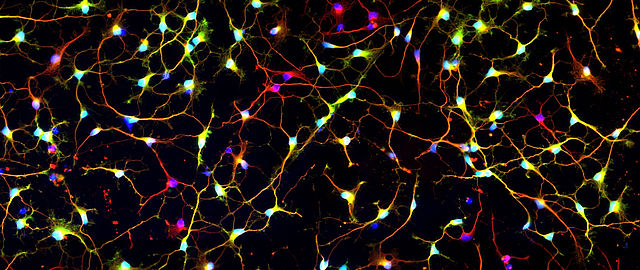
Hauser Lab
Advanced Cellular Models of Neurodegeneration
The research group focuses on the development of cutting-edge cellular models for the study of monogenetic neurodegenerative diseases ...more info
-

Siegel Lab
Neural Dynamics and Magnetoencephalography
The central goal of the laboratory is to investigate how cognition and behavior emerges from dynamic interactions across widely distributed neuronal ensembles... more information
-
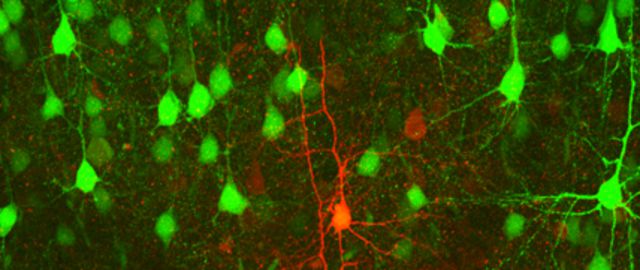
Hedrich-Klimosch Lab
Experimental Neurophysiology of Channelopathies
Our research group uses transgenic mouse models to investigate the molecular mechanisms of disease-associated variants in genes encoding neuronal ion channels. ...more information
-
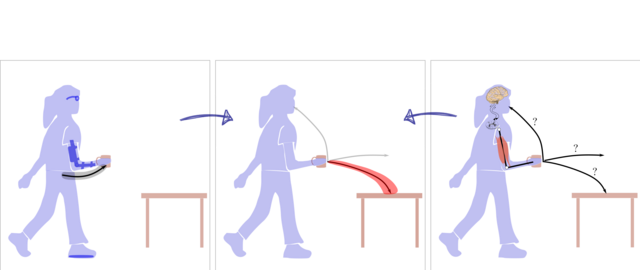
Wochner Lab
Neuromechanical Modeling and Sensor Fusion for Assistive Robotics
This research group is investigating how everyday movements can be predicted in real time using wearable sensor data and neuromechanical computer models. more info
Research groups
-

Kronenberg-Versteeg Lab
Glial Cell Biology
Glial cells are highly abundant in the mammalian brain, yet many questions regarding their development, function, and involvement in disease remain unanswered. ...more information
-
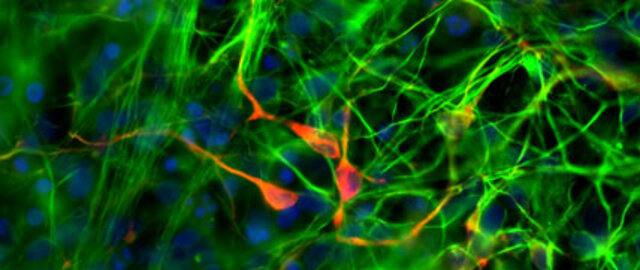
Brockmann Lab
Clinical Parkinson's Disease Research
Parkinson's disease (PD) is the second most frequent neurodegenerative disorder after Alzheimer’s disease and affects about 1 to 2 % of individuals over the age of 65. The number is steadily increasing due to demographic changes in Western countries. ...more information
-
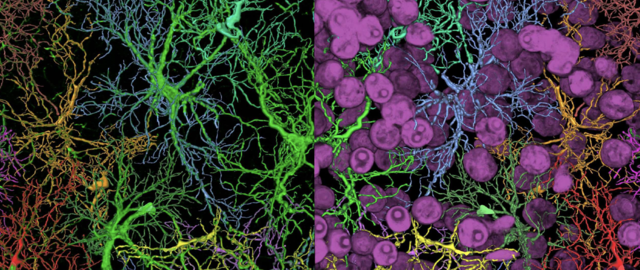
Sevenich Lab
Experimental Neuroonco-Immunology
Research in this lab is focused on tumor immunology in brain cancer in particular brain metastasis ...more information
-
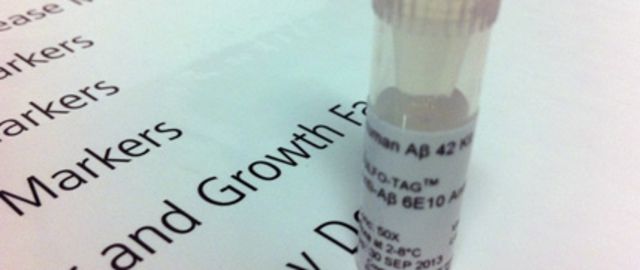
Unit
Käser Unit
Molecular Biomarkers Unit
Processes related to Alzheimer ́s disease (AD) and other age-related neurodegenerative diseases start many years before the onset of the first clinical symptoms. At the moment of the first clinical complaints, the disease has already caused ...more information
-
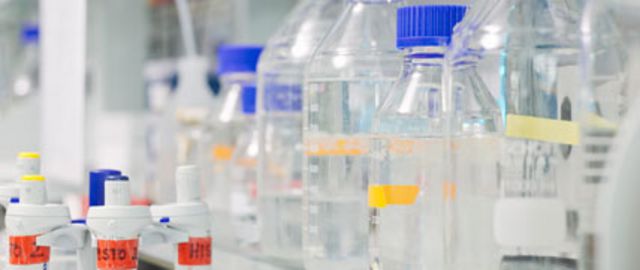
Gasser Lab
Dystonia
Dystonia is the third most common movement disorder, and mutations in a growing number of genes have been identified as causes for hereditary forms in many cases. The aim of the group, which brings together clinical experience ...more information
-
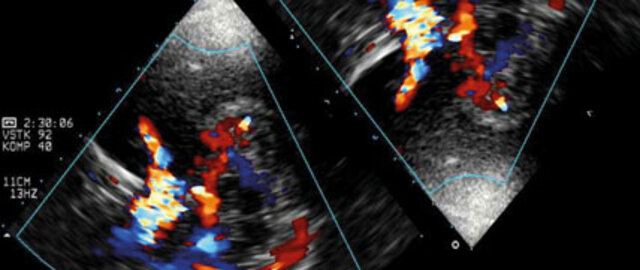
Poli Lab
Stroke and Neuroprotection
The research focus of our Stroke and Neuroprotection Laboratory is to find new and to optimize existing neuroprotective strategies ...more information
-
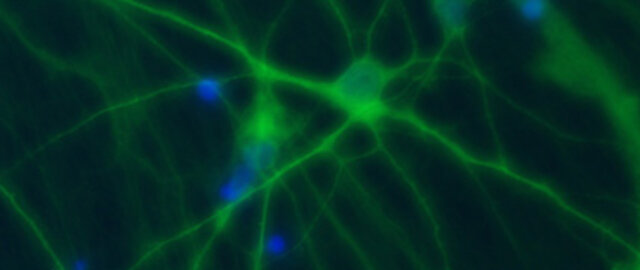
Lerche Lab
Experimental Epileptology
Our research group is interested to unravel the mechanisms of well defined, mainly genetic, neurological, paroxysmal diseases, to understand correlations with clinical symptoms and to find new treatment options. ...more information
-
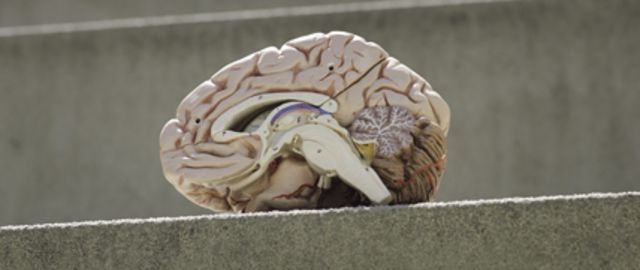
Hafed Lab
Active Perception Lab
Humans are tremendously reliant on the sense of vision to interact with their environment. Such interaction often involves the generation of motor outputs ...more information
-
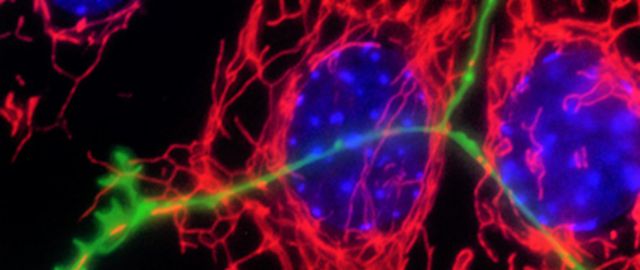
Fitzgerald Lab
Mitochondrial Biology of Parkinson’s Disease
Neurodegenerative disorders are associated in a proportion of cases with genetic risk and gene mutations. However, the vast majority …more info
-
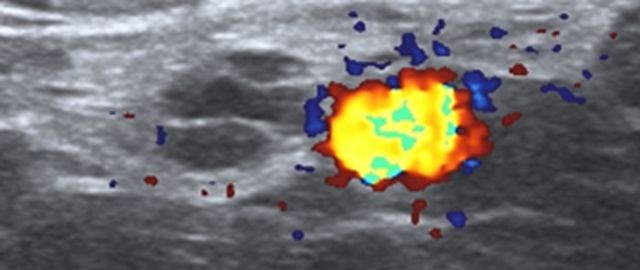
Grimm Lab
Neuromuscular Imaging Group
The group works on different projects concerning nerve imaging, particularly high-resolution ultrasound in neuromuscular disorders ...more information
-
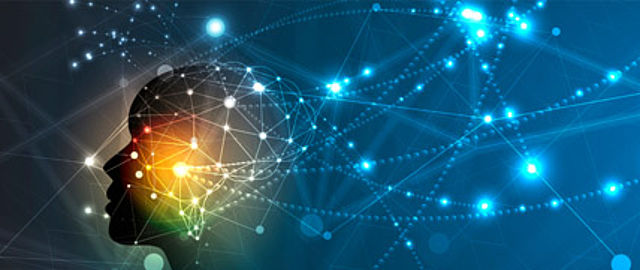
Tabatabai Lab
Laboratory for Clinical and Experimental Neuro-Oncology
The Interdisciplinary Division of Neuro-Oncology at the Hertie-Institut for Clinical Brain Research is the result of the, in the context of the Excellent Initiative, newly created W3-Professorship in Neuro-Oncology ... more information
-
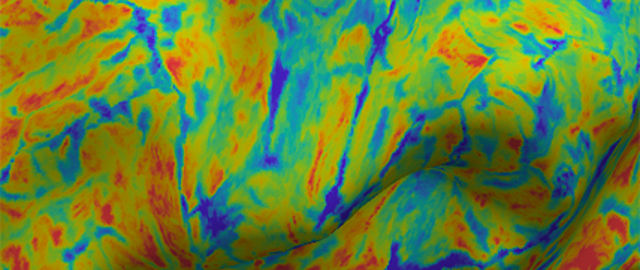
Kühn Lab
Translational Imaging of Cortical Microstructure
My Research Group uses translational MR imaging to understand how cortical microstructure links to human brain function in health and disease... more information
Research groups
-
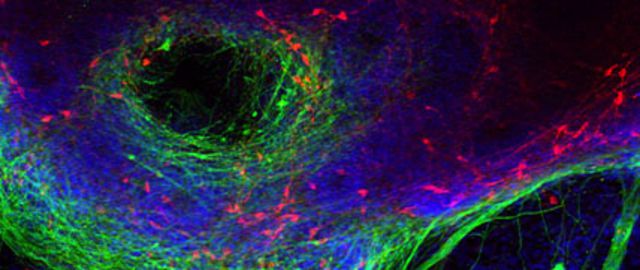
Schöls Lab
Section for Clinical Neurogenetics
Neurogenetic diseases like cerebellar ataxia, hereditary spastic paraplegia and leukodystrophy are rare disorders. ...more information
-
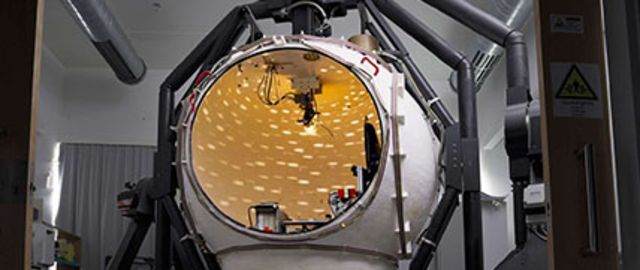
Thier Lab
Cognitive Neurology
The lab addresses a variety of topics that, at first glance, may look disparate. Yet, there is a common denominator ...more information
-
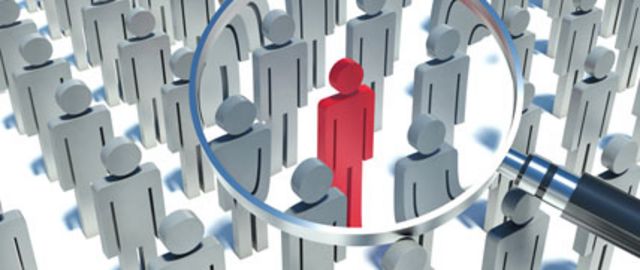
Schüle Lab
Genomic of Rare Movement Disorders
Our group specializes in rare diseases. A disease is called rare, when it affects no more than 5 of 100,000 people. However, in the grand-scheme of things, rare diseases are not quite so rare ...more information
-
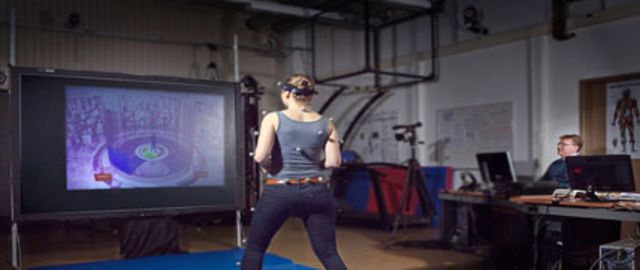
Giese Lab
Section for Computational Sensomotorics
The Section for Computational Sensomotorics investigates theoretical principles in the perception and control of motor actions. Research is organized around three main topics ...more information
-
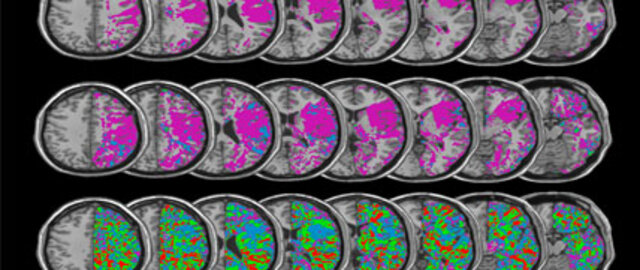
Karnath Lab
Section for Neuropsychology
The Section for Neuropsychology focuses on the investigation of spatial cognition and object recognition in humans. The current issues of our work comprise the action control and sensorimotor coordination ...more information
-
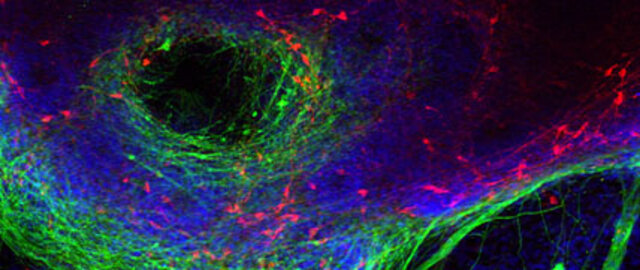
Kahle Lab
Functional Neurogenetics
Age-related neurodegenerative diseases are a severe and increasingly worrisome burden for our aging population. Most of the chronic neurodegenerative diseases ...more information
-
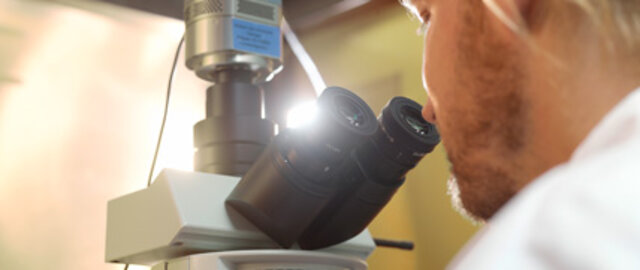
Schwarz Lab
Systems Neurophysiology Lab
The overarching goal of our work is to understand the operating principles of the neocortex, a unique brain structure, which mainly evolved in mammals. There is clear evidence that the neocortex, in the broadest sense, endows the subject with cognitive capabilities. ...more information
-
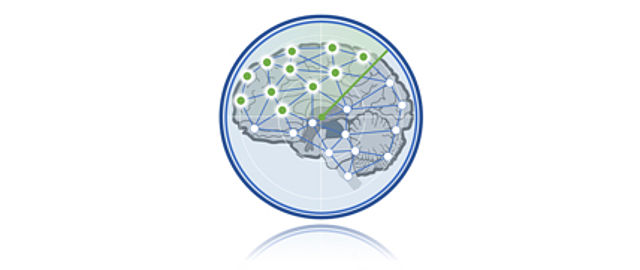
Weiß Lab
Deep Brain Stimulation
The working group aims to uncover mechanisms of action of deep brain stimulation therapy and to translate the pathophysiological insights into future developments. …more information
-
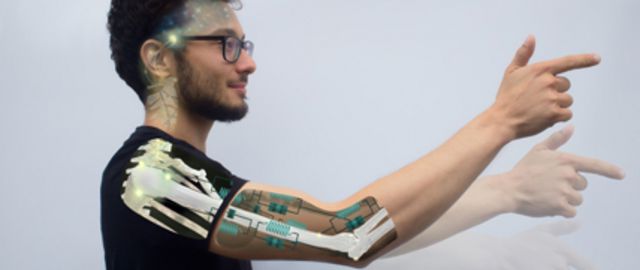
Häufle Lab
Neuromechanics and Rehabilitation Robotics (NeuRoMech)
The research group „Neuromechanics and Rehabilitation Robotics (NeuRoMech)“ focuses on the generation and control of active biological movements. We develop ...more information
-
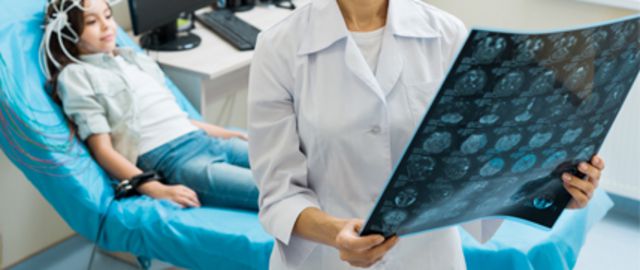
Merk Lab
Experimental Pediatric Neuro-Oncology
Brain tumors are the leading cause of cancer-related deaths in infants, children, and adolescents. Our lab is mostly focusing on embryonal brain tumors including ... more information
-
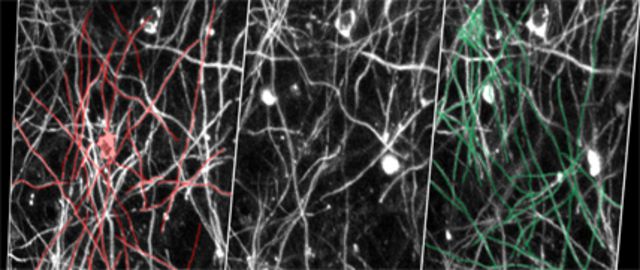
Snaidero Lab
Neuron-Glia Interactions
The goal of the Snaidero lab is to decipher and control cellular interactions between neurons and glia cells in the cortex, focussing on the dynamic processes underlying myelination. ... more information
-

Renovanz Lab
Health Care Research in Neuro-Oncology
The group focuses on the health-related quality of life, psychosocial burden and unmet needs in neuro-oncological patients. Our key question is... more information
-
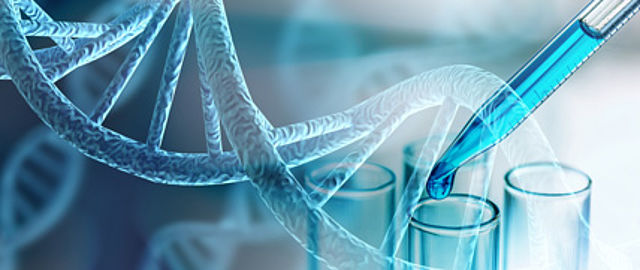
Synofzik Lab
Translational Genomics of Neurodegenerative Diseases
The translational research of our Research Division is fully geared by a systematic translational pipeline of developing therapy strategies for a broad range of genetically stratified neurodegenerative diseases ...more info



